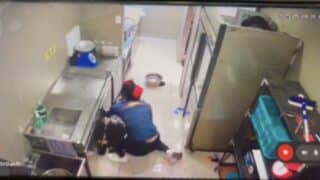A battery of pressure tests conducted recently by First Philippine Industrial Corp. (FPIC) on its 117-kilometer-long oil pipeline barely addressed the requirement set by the Supreme Court, which earlier ordered the Lopez-owned company to verify the structure’s integrity, according to the lawyer of West Tower condominium residents.
In a statement, Lorna Kapunan said that FPIC missed the point of the high tribunal’s order, which set parameters for determining the structural soundness of the 40-year-old pipeline—the source of the oil that leaked into the 22-story building in July last year, leading to its closure and the displacement of residents.
“A mere leak test for only three days does not answer the burning question of whether the whole pipeline is still in its optimal and proper condition to carry toxic gasoline products from Batangas to Manila on a regular basis,” she added.
This was supported by Manuel Chuaunsu, one of the affected residents, who said that the pressure test doesn’t verify the system’s structural integrity.
“What residents want to know is if the pipeline will have leaks in the future and how long [its life span] is, so to speak,” he told the Inquirer in a phone interview.
He pointed out that since the structure was installed in the 1960s, it has undergone only minimal repairs.
Earlier, the Department of Energy said that it would recommend the reopening of the pipeline, which was shut down after oil started seeping into the West Tower basement in July 2010.
A portion of the pipeline, which transports oil products from Batangas province to the Pandacan oil depots, runs near the building.
Kapunan said the recent testing did “not assuage the fear of [Barangay] Bangkal residents—or all the residents living beside the pipeline for that matter—that there won’t be any more undetected leaks in the future.”
“Up to now, FPIC has yet to do what the Supreme Court is ordering it to do—a full and complete check of the structural integrity of the pipeline. What the company has done so far are cosmetic procedures that neither improve the pipeline’s structure nor the company’s integrity,” she added.



